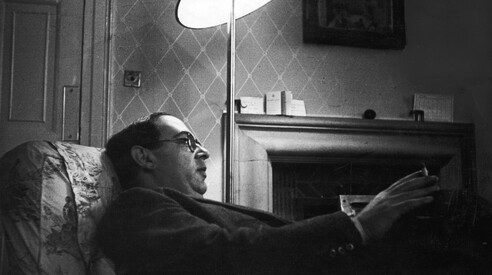Liberal but also pluralist. Berlin's lesson for our fanatical times.


Getty Images
the philosopher's perspective
For the British philosopher, freedom is not the only value in this world. Rather, it coexists with others, which correspond to different and irrepressible human needs.
On the same topic:
If summer brings with it the pleasure of "dolce far niente," some good reading can help stave off boredom. Reading Sir Isaiah Berlin (1909-1997) is unlikely to cause or fuel it. On the contrary, partly because of his enviable, lucid writing ability, partly because of the classical themes he addresses, but always clearly, the thinker of Latvian origins can be enjoyable even for non-experts. Berlin is unanimously considered one of the most important scholars on the theme of freedom. In several of his works, including the well-known Two Concepts of Freedom (1958), he exemplarily clarified the distinction between so-called negative and positive freedom. The former, if you look closely, is logically the prerequisite for the latter: freedom is therefore, first and foremost, the absence of coercion. "The fundamental meaning of freedom," he wrote, "is freedom from chains, from being imprisoned or enslaved by someone else." Over the course of the twentieth century, and through a semantic shift brought about primarily by the so-called English New Liberals at the end of the previous century, freedom became something else: namely, the idea that the individual should be empowered to fully develop his or her capabilities. This evidently entailed an expansion of state intervention to provide the means deemed necessary for individual liberation. Freedom, in other words, thus brings with it power: indeed, it is rather rendered subservient and enslaved by it. It is no coincidence that in a note to the aforementioned classic, Berlin described the liberation of the "true" self and the creation of "true" freedom as a formula that many tyrants could use "to justify their worst acts of oppression."
Just as he urged us to discuss freedom in a disenchanted manner, free from idolatry of any kind, the English philosopher also urged us to take pluralism seriously, as Dino Cofrancesco wrote in a recent book, Isaiah Berlin. Pluralism Taken Seriously (Rubbettino). For Berlin, freedom is not the only value in this world. Rather, it coexists alongside others, which correspond to different and irrepressible human needs. Humans are ultimately complex creatures, and this makes them open to a variety of influences, certainly also harbingers of conflict. The need for roots, which Simone Weil defined as the most important for the human soul, is also crucial for Berlin. Freedom also finds its limits in its belonging to multiple communities. These communities are, in a way, the compass that allows sails to orient themselves at sea, and perhaps especially in stormy weather. Acknowledging the pluralism of values, therefore, allows us to escape an ever-lurking monistic tendency: that merciless fanaticism that knows nothing other than itself, that is ignorant of doubt, that disrespects experience because it is merely a tinsel to the realization of an all-encompassing scheme of perfection. "This ancient and almost universal faith, on which so much of traditional philosophical thought, action, and doctrine rests (...) has repeatedly led (and still leads) to absurdities in theory and barbaric consequences in practice." It is not for nothing that among the authors he most criticized was Saint-Simon, "possessed throughout his life by the idea that he was the great, new Messiah who had finally come to save the earth." Fewer certainties and more skepticism, Berlin warned: here is "a healthy check" on the messianic ardour of the social engineers of yesterday, today, and tomorrow.
More on these topics:
ilmanifesto





